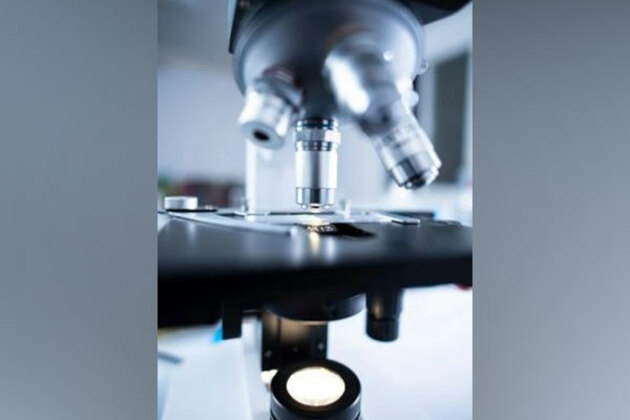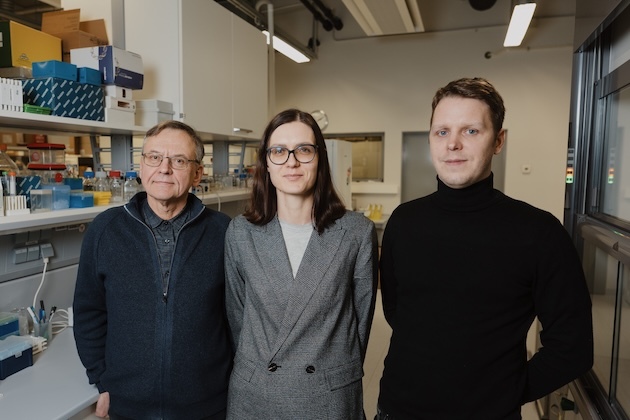Here is how AI can help to understand gut bacteria
ANI
06 Jul 2025, 19:37 GMT+10

Tokyo [Japan], July 6 (ANI): Gut bacteria are considered to be a key factor in many health-related issues. However, the number and variety of them are vast, as are the ways in which they interact with the body's chemistry and each other.
For the first time, researchers from the University of Tokyo used a special kind of artificial intelligence called a Bayesian neural network to probe a dataset on gut bacteria in order to find relationships that current analytical tools could not reliably identify.
The human body comprises about 30 trillion to 40 trillion cells, but your intestines contain about 100 trillion gut bacteria. Technically, you're carrying around more cells that aren't you than are. Food for thought. And speaking of food, these gut bacteria are, of course, responsible for some aspects of digestion, though what's surprising to some is how they can relate to many other aspects of human health as well.
The bacteria are incredibly varied and also produce and modify a bewildering number of different chemicals called metabolites. These act like molecular messengers, permeating your body, affecting everything from your immune system and metabolism to your brain function and mood. Needless to say, there's much to gain by understanding gut bacteria.
'The problem is that we're only beginning to understand which bacteria produce which human metabolites and how these relationships change in different diseases,' said Project Researcher Tung Dang from the Tsunoda lab in the Department of Biological Sciences, adding, 'By accurately mapping these bacteria-chemical relationships, we could potentially develop personalized treatments. Imagine being able to grow a specific bacterium to produce beneficial human metabolites or designing targeted therapies that modify these metabolites to treat diseases.'
There are uncountably many and varied bacteria and metabolites, and therefore far more relationships between these things. Gathering data on this alone is a monumental undertaking, but unpicking that data to find interesting patterns that might betray some useful function is even more so. To do this, Dang and his team decided to explore the use of state-of-the art artificial intelligence (AI) tools.
'Our system, VBayesMM, automatically distinguishes the key players that significantly influence metabolites from the vast background of less relevant microbes, while also acknowledging uncertainty about the predicted relationships, rather than providing overconfident but potentially wrong answers,' said Dang. 'When tested on real data from sleep disorder, obesity and cancer studies, our approach consistently outperformed existing methods and identified specific bacterial families that align with known biological processes, giving confidence that it discovers real biological relationships rather than meaningless statistical patterns.'
As VBayesMM can handle and communicate issues of uncertainty, it gives researchers more confidence than a tool which does not. Even though the system is optimized to cope with heavy analytical workloads, mining such huge datasets still comes with high computational cost; however, as time goes on, this will become less and less of a barrier to those wishing to use it. Other limitations at present include that the system benefits from having more data about the gut bacteria than the metabolites they produce; when there's insufficient bacteria data, the accuracy drops. Also, VBayesMM assumes the microbes act independently, but in reality, gut bacteria interact in an incredibly complex number of ways.
'We plan to work with more comprehensive chemical datasets that capture the complete range of bacterial products, though this creates new challenges in determining whether chemicals come from bacteria, the human body or external sources like diet,' said Dang. 'We also aim to make VBayesMM more robust when analyzing diverse patient populations, incorporating bacterial 'family tree' relationships to make better predictions, and further reducing the computational time needed for analysis. For clinical applications, the ultimate goal is identifying specific bacterial targets for treatments or dietary interventions that could actually help patients, moving from basic research toward practical medical applications.' (ANI)
 Share
Share
 Tweet
Tweet
 Share
Share
 Flip
Flip
 Email
Email
Watch latest videos
Subscribe and Follow
Get a daily dose of Mexico Star news through our daily email, its complimentary and keeps you fully up to date with world and business news as well.
News RELEASES
Publish news of your business, community or sports group, personnel appointments, major event and more by submitting a news release to Mexico Star.
More InformationLifestyle
SectionNew French law targets smoking near schools, public spaces
PARIS, France: France is taking stronger steps to reduce smoking. A new health rule announced on Saturday will soon ban smoking in...
Methionine Restriction Could Extend Lifespan, Boost Health
VILNIUS, Lithuania – A growing body of research suggests that selectively restricting a single nutrient in our diet could have profound...
Highly controversial, encourages 'dadgiri': Ramdas Athawale criticises Raj Thackeray's statement
New Delhi [India], July 6 (ANI): Amid the ongoing language row, Union Minister Ramdas Athawale on Sunday criticised Maharashtra Navnirman...
Here is how AI can help to understand gut bacteria
Tokyo [Japan], July 6 (ANI): Gut bacteria are considered to be a key factor in many health-related issues. However, the number and...
Pakistan: Death toll in Karachi's Lyari building collapse rises to 27 as rescue efforts continue
Karachi [Pakistan], July 6 (ANI): The total death toll from the collapse of a five-storey building in the Lyari area of Pakistan's...
Uyghurs rally at White House to commemorate Urumchi massacre anniversary, urge action against China
Washington, DC [US], July 6 (ANI): Dozens of Uyghurs, East Turkistanis, and American allies held a demonstration outside the White...
International
SectionNetanyahu vows 'No Hamas' in postwar Gaza amid peace talks
CAIRO, Egypt: This week, both Hamas and Israel shared their views ahead of expected peace talks about a new U.S.-backed ceasefire plan....
US sends message by publicizing visa ban on UK punk-rap band
WASHINGTON, D.C.: The Trump administration has made public a visa decision that would usually be kept private. It did this to send...
Tragedy in Spain: Diogo Jota and his brother die in car accident
MADRID, Spain: Liverpool footballer Diogo Jota and his younger brother, André Silva, have died in a car accident in Spain. Spanish...
Early heatwave grips Europe, leaving 8 dead and nations on alert
LONDON, U.K.: An unrelenting heatwave sweeping across Europe has pushed early summer temperatures to historic highs, triggering deadly...
U.S. military, China, Russia in Space race
President Donald Trump's plans to build a space-based Golden Dome missile defense shield have drawn immediate criticism from China,...
Trump wins $16 million settlement from Paramount over CBS Harris edit
NEW YORK CITY, New York: Paramount has agreed to pay US$16 million to settle a lawsuit brought by U.S. President Donald Trump over...












